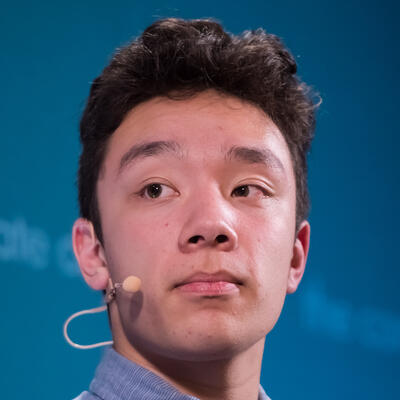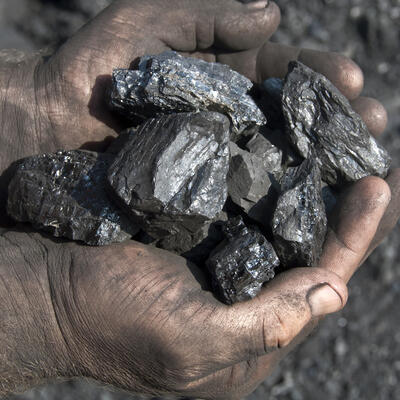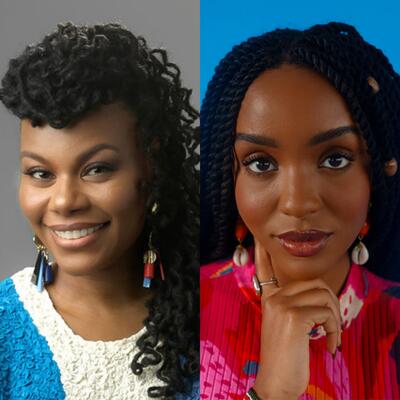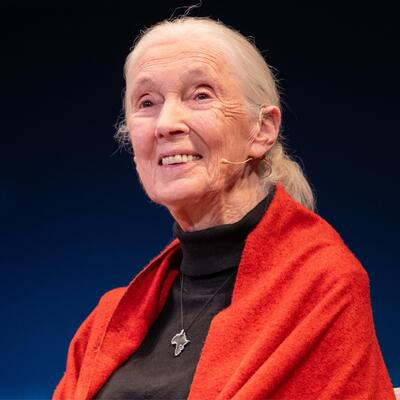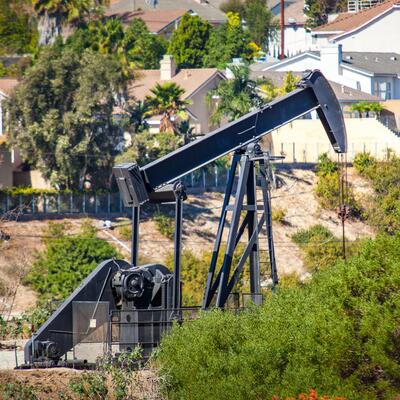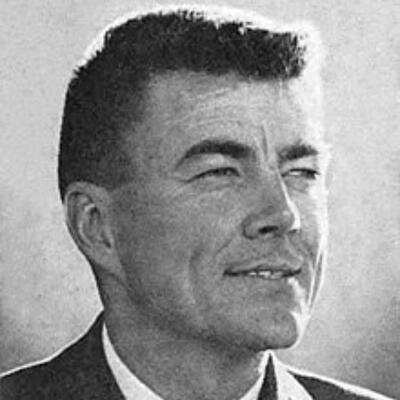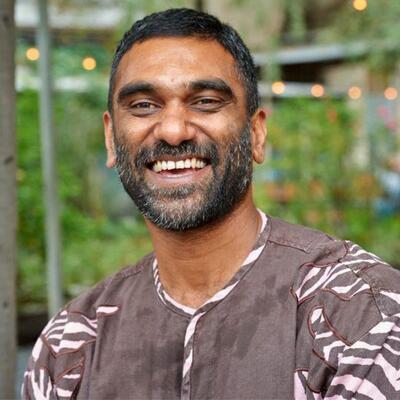
Youth in the Streets and in the Courts
Guests
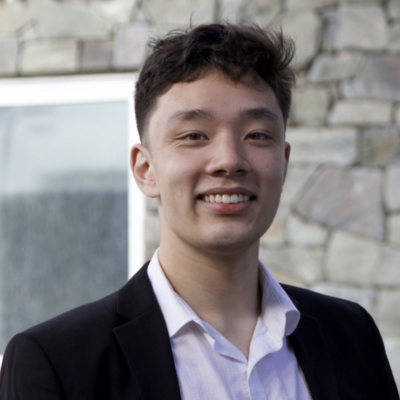
James Coleman
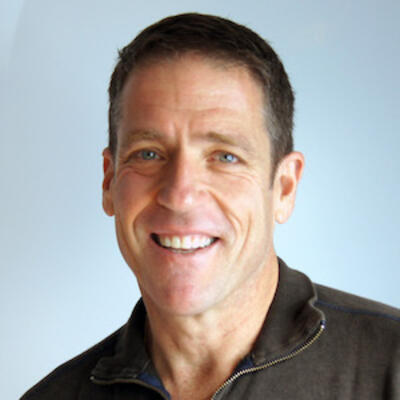
Lou Helmuth
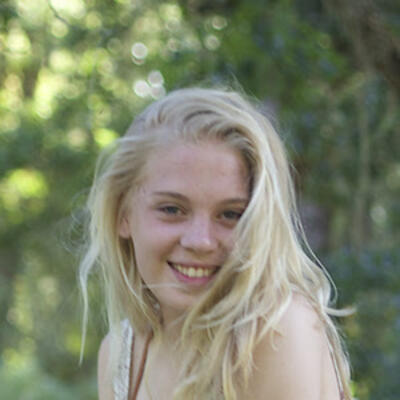
Corina MacWilliams
Summary
Do teenagers have a chance to be heard and make an impact on an issue so complex and massive as the world’s energy system? How are young advocates using social media to advance their cause? Join us for a conversation about kids confronting powerful institutions and finding their own power and voices.
Full Transcript
Greg Dalton: From the Commonwealth Club of California this is Climate One, changing the conversation about America's energy, economy and environment. I'm Greg Dalton. And today we’ll hear from young advocates clamoring for a faster transition to cleaner energy. Students in many grade and high schools learned the basics of how burning fossil fuels are driving rising temperatures and rising seas. Now some students are taking that knowledge into the streets and into the courts, not content to wait until they're running companies or other organizations in a decade or two. They’re pressing for more action now to protect their future and ours.
Joining our live audience at the Commonwealth Club in San Francisco, we’re pleased to have with us three leaders. James Coleman is a senior at South San Francisco High School and an action fellow with Alliance for Climate Education, a group that presents climate assemblies in high schools in Boston, Raleigh, North Carolina, Las Vegas, New York City and the San Francisco Bay Area. Lou Helmuth is Deputy Director of Our Children's Trust, an organization that is suing the federal government on behalf of 21 young people around the country who claim to have been harmed by climate disruption. The suit asks the federal government to come up with a climate repair plan and cut carbon pollution and stabilize the climate that supports our economy and our lifestyle. Corina MacWilliams is a student at South Eugene High School and an active member of Earth Guardians and other environmental organizations in Eugene, Oregon. Please welcome them to Climate One.
[Applause]
James Coleman, you were inspired by Standing Rock. Tell us how Standing Rock galvanized you and brought you more into environmental advocacy.
James Coleman: There are people in Standing Rock, native people who are protesting for their right to clean water. And they were met with rubber bullets, mace, pepper spray and high-pressure water hoses in freezing temperatures. And these are human rights violations happening right before our eyes in our country. People who just want to have clean water are being jeopardized by having oil pipelines run in their backyards. And it’s scary because this didn’t happen anywhere in the country.
Greg Dalton: And what did you do about it? You saw that on TV, right or something. You saw it on the news and then what did you do about it?
James Coleman: With the help of ACE, I –
Greg Dalton: The Alliance for Climate Education.
James Coleman: Right. We started a supply drive at my school to raise money and any supplies that we could send over to North Dakota and help the water protectors.
Greg Dalton: Okay. And then, but you are unable to go to Standing Rock, would you if you could?
James Coleman: I definitely would but I don’t think my mom would be okay with that.
Greg Dalton: [Laughing] Fair enough. Corina MacWilliams, you lead some efforts on a climate ordinance in your hometown. Tell us about that.
Corina MacWilliams: So the climate recovery ordinance was passed in Eugene in 2014 and it was basically this law thing that Eugene had to cut its carbon emissions in half by 2030. And the issue with the bill was that it lacked specific legislation on when city officials had to get certain deadlines done and accomplished. So what my club and I did is we went this past year and we still are going every two weeks and testify to the city council basically telling them why climate change matter to us and how their action in city government directly affected our futures. And it ended up getting like some progress done they passed the 350 carbon legit last June with the unanimous votes so that was really cool, yeah.
Greg Dalton: So you're a teenager, you're a junior in high school, which means you’re what 16 or 17 and got a lot going on. And every two weeks, you're going to boring council hearings at the city government, you know, tell us more. Why are you doing that how did you get into that?
Corina MacWilliams: Well, I got into it through Professor Mary Christina Wood. My colleagues and I, Wes Georgeve and Sage Fox at the time, now Alden McLean, because Sage graduated. But she was like, you guys should go out and testify to the city council because this bill is passed and like now, you know, there’s just a huge lack of action. And at first I was like really nervous to go and testify because it’s public speaking and it’s, wasn’t initially my favorite. But, yeah, that's how I got into it and then the process is you go to the city council meetings, you like write your testimony maybe it’s like a page and then you go up and read it in front of the city council for about two or three minutes and then it’s over. And it’s like, it’s quick but it’s super effective because if you keep going every two weeks then they’re either gonna like get tired of your face or like actually hear what you’re trying to tell them. Yeah, it’s effective.
Greg Dalton: James how about you? How did you get into – and then we’ll go to Lou, but how did you get into, before Standing Rock, was there any environmental awareness in your life, in your family?
James Coleman: I was a member of my school's Earth Club since freshman year. And there we participated in events like beach cleanups, school recycling and hiking trips. And I eventually applied for vice president in my junior year, and there I organized events to Sutro Stewards, which is a little mini forest in the middle of San Francisco where we removed the invasive species of ivy and replanted native species to help the forest biodiversity. And our Earth Club’s advisor brought to me this program called ACE and I applied and got in.
Greg Dalton: Alliance for Climate Education. So Lou Helmuth, let’s talk about the suit. Set it up for us, what’s this suit doing, what's its aim to do?
[00:13:30] Lou Helmuth: So I’m the Deputy Director at Our Children’s Trust and we work with young people around the globe to advance their interest in preserving the atmosphere and natural systems through legal action and public education. So we support young people in bringing lawsuits, including this one, that we’re going to talk about centrally, which is a lawsuit that was brought by 21 young people in the United States, they’re from all over the United States. Florida and Colorado and Oregon and New York and all over the U.S. and they sued in 2015, President Obama and the Obama administration.
So the Department of the Interior, the Environmental Protection Agency, the Department of Agriculture and the secretaries of those departments. And they are accusing the federal government of violating their constitutional right to life liberty and property. They’re also accusing the federal government of not preserving the public trust. We all need to share in our common resources and we have to make sure that we don't use them up today so that they're not available for future generations. We have to balance that out.
Well, we don't think that the federal government has done that with respect to the atmosphere. Instead, we've destroyed the atmosphere. We’ve got over 400 parts per million of carbon dioxide. So we brought this lawsuit or these young people brought this lawsuit to ask the federal government to prepare a science-based national climate recovery plan that will bring carbon dioxide from over 400 parts per million to below 350 parts per million by the year 2100. So we want the court to tell the government that it needs to do this. We know that scientifically if we can achieve that that we will stabilize our climate system. So that's the nature of the lawsuit.
Greg Dalton: Let's meet one of the plaintiffs in this lawsuit. Her name is Victoria Barrett from White Plains, New York. Victoria claimed she has become emotionally distressed by the increase in super storms in the Northeast, including Hurricane Sandy which impacted her and her family. Rising temperatures have also made her allergies worse which limits her outdoor times. Let's listen to Victoria Barrett.
[Start Clip]
Victoria Barrett: My name is Victoria Barrett, I’m 17 years old. I live in New York and I’m a youth climate activist who’s been fighting on the front lines since about my freshman year. I’m a youth plaintiff on a climate lawsuit against U.S. federal government because they are taking direct action to put my future at risk by allowing for the extensive use of fossil fuels and development of fossil fuels worldwide.
It’s the 21 youth plaintiffs versus the entire federal government. A huge conglomerate of the fossil fuel industry is also signed on as a codefendant. Climate change is an issue that’s facing our entire world, but the results of it are disproportionately gonna impact people my age. And so that’s why we as young people are deciding we’re gonna fight now and not wait until we’re adults like society has told us we need to be to have power decision-making.
Our society at some point in the 20th century decided that we wanted to be dependent on fossil fuels and at a time when we wanted to develop and grow that made sense. But now, we’re at a point where that decision to use fossil fuels and depend on fossil fuels is putting us all at risk. Even though it’s a lawsuit, you know, something you could win or lose, I feel like no matter what happens we’ve still created a precedent for other young people in this country and other young people around the world to realize that they can force power to listen to them.
Our generation doesn't care who you are or where you're from. We just care if you have good ideas or if you have bad ideas or if you’re for a change or if you’re not for a change. I’m just a normal 17-year-old, I just saw something that I didn't like and saw something that I didn't understand, and decided that I was going to give myself a platform, no matter what negativity we hear about ourselves.
[End Clip]
Greg Dalton: That was Victoria Barrett, one of 21 young Americans suing the federal government about climate change. Lou Helmuth, tell us about some of the other plaintiffs in the 21?
Lou Helmuth: Just super cool young people with, you know, just incredible passion to save the planet, and to do the right thing.
Victoria is one from New York City. The youngest plaintiff is now 10 years old, Levi, he lives in the Indialantic, Florida where his beaches are now essentially gone and his property is threatened, it’s a tiny little barrier reef island on which he lives. Jaden is a young woman from Louisiana who has experienced a 1,000-year flood and multiple 500-year floods in the last year. Her home was destroyed in August, flooded sewage, you know, backing up. They’re starting to rebuild now, they've torn out the carpet and everything. And just a couple of weeks ago Jaden moved back into her room, but the whole family is not yet back into their home. There's the eldest plaintiff and the name plaintiff is Kelsey Juliana the name of the case now is Juliana v Trump. And Kelsey is a 20-year-old sophomore at the University of Oregon. And she is also a plaintiff on a state case that is a similar sort of action asking the state of Oregon to enact a similar sort of plan. So there are wide variety of young people, all with incredible passions and power a lot like James and Corina here and what I think are probably like a lot of you just, you know, regular folks, but with a real mission.
Greg Dalton: And the court case goes to trial maybe later this year. President Obama tried to block it. President Trump tried to block it. So tell us the state of the game.
Lou Helmuth: State of the game. So yeah, the judge told us back in November, well, I’m gonna back up just before then.
So we brought this lawsuit and the young people secured an amazing preliminary ruling in November, just two days after the election of President Trump where the court found for the first time in history that the United States Constitution guarantees, I have goose bumps all over my body right now. The United States Constitution guarantees a constitutional right to a climate system capable of sustaining human life. That's what these 21 young people secured. The court also found that the federal government does have that public trust responsibility that I talked about a little earlier to manage our natural resources and the atmosphere to make sure that it's available both for present and future generations. And the court also found that the remedy that the kids are seeking the court order that the federal government enacts the science-based climate recovery plan on a national level is a legitimate remedy for a constitutional violation of the constitutional right that was determined for the first time on November 10, 2016.
So right now where we are as the case is progressing to trial. We are scheduled the last we heard from the court was that they want to have the trial in late 2017. And what that means is that we will bring evidence about what the government has done to perpetuate climate change and to cause climate change and to allow climate change to runaway uncontrolled. And we will also demonstrate that these young people are harmed by the actions of the federal government and that this remedy can fix the problem of climate change. The Trump administration has just filed for what's called an interlocutory appeal. And what that means is they've asked for before we go to trial on this case they want to take the case up from the Federal District Court for the District of Oregon to the Ninth Circuit Court of Appeals here in San Francisco to appeal that decision that I just told you about that there's a constitutional right to a climate system capable of sustaining human life and a few others of the preliminary rulings.
So the case is, you know, is hot and moving forward. There's a lot that's happening. We the young people are engaged in what's called discovery, trying to learn about all the facts of what the government knew and didn't know and how the fossil fuel industry was involved in those decisions.
Greg Dalton: Corina MacWilliams, you are an indirect participant in this suit through Earth Guardians organization. What's that mean to you what do you feel is at stake?
Corina MacWilliams: Our futures. Yeah, I mean like he said the kids are suing the government over their right to life liberty and property. And that's exactly what is at stake like it's not only, you know, my health and, you know, my generation, it’s all generations after that. Like this isn't just gonna affect today's people, it’s going to affect, you know, the health and safety of the entire world really, you know, from now on.
Greg Dalton: And how does that make you feel and how about your peers at school, do they also worry about this concern or you know, how does it affect you day-to-day?
Corina MacWilliams: Day-to-day, I would say that a lot of the work I do for my climate activism club it takes a lot of my time and a lot of my energy because I would rather be doing that than anything else. I think it's like the most important thing in my life. I have kind of made this conscious decision to dedicate, you know, everything, every decision that I make like to mitigating climate change, because to me it’s the most important thing that I can do with my time and energy.
Greg Dalton: James Coleman, the Alliance for Climate Education that you’re a part of does a fabulous presentation in high schools, I've seen it. So if you were to explain kind of the basics of climate science to someone who didn't understand, how would you explain that?
James Coleman: I’ll explain it as right now a lot of companies, factories, governments are polluting the earth in a way where they are putting lots of carbon in the form of CO2 in the atmosphere, and that causes what we call a greenhouse effect. Where the sun’s rays come to earth, bounce back up and once it hits the CO2 it bounces back down. And that causes the earth to act as an oven warming the earth more and more and that causes climate change where climate is different, more extreme. So you get more floods, more storms, hotter weather and colder weather in places that usually don't have that.
Greg Dalton: I’ve interviewed lots of scientists and that’s one of the clearest explanations I’ve heard.
[Applause]
The earth as an oven. There’s also a time lag, explain the time lag.
James Coleman: So the effects of climate change that we are feeling today result from the emissions that were from the 1970s. And the emissions that we are emitting today will not be felt until 40 years down the road. And this is something that really, this places a sense of immediacy in this issue. People look at climate change and say, oh this will affect me 20 years from now they don't feel the changes today. But it really makes it a lot more intimidating, a lot scarier to deal with that is coming down the road.
Greg Dalton: That time lag I guess they’re kind of like, oh off in the future. Lou Helmuth, the U.S. government realized starting in the 1950s that the greenhouse effect burning fossil fuels was going to cause problems. Tell us that story from the 50s the gradual realization of the greenhouse effect that James just explained.
Lou Helmuth: Yeah, unfortunately it's not really a gradual realization. It was back in the 50s, our federal government knew that burning fossil fuels emitted carbon dioxide into the atmosphere. And by 1965 during the President Johnson, Lyndon Johnson administration there is White House reports and memoranda talking about the apocalyptic effects of continuing to burn fossil fuels and extend the carbon dioxide in the atmosphere. That was so evident to our government in the 60s and 70s that soon thereafter, a number of members of Congress asked the Environmental Protection Agency to explore this growing crisis. And in 1990 and 1991, the environmental protection agency produced a pretty comprehensive report very clearly saying that we have to cap emissions at 350 parts per million carbon dioxide in the atmosphere, we can't go above that. This is 1990, we knew that. And they came up with, you know, the framework of a plan for what we need to do to make sure that at that point when we were still below 350 parts per million we didn't exceed 350 parts per million.
Well, I don't know what happened with that report, but there doesn't seem to be a lot of evidence that anything happened with that report. It’s not just me who doesn’t know what happened with that report. Nothing happened with that report. And instead we've had nothing but continued perpetuation and subsidy of the fossil fuel industry. The permitting of fossil fuel infrastructure all around our country, the Dakota Access Pipeline is an example of that. It's just more and more fossil fuels despite the knowledge that we can't exceed a level that we’re already beyond and that we’re putting it on the backs of young people and future generations.
Greg Dalton: And the fossil fuel industry has joined this case, you are not suing the fossil fuel industry you’re suing the federal government, but they have been allowed to be join the case, as I believe, interested party. So tell us that aspect.
Lou Helmuth: Yeah, that's kind of interesting. Right after the case was filed, the fossil fuel industry through their trade associations, the American Petroleum Institute, the National Association of Manufacturers and the American Petrochemicals Manufacturers Association asked the court if they could participate to defend against this case because they said the young people's case is extraordinary and a direct threat to our business. So, you know, it's kind of, it’s great in our constitutional justice system if Corina and I have a lawsuit against each other. But one of you in the audience is directly impacted by that and you can show that impact the court under certain limited circumstances will allow you to participate in that case, and that's what the court did in this case they said, you know your business will be directly impacted by this case.
And so they are now what are called intervenor defendants and they've really been pretty lockstep with the federal government in terms of their strategies including the most recent – remember I told you about that little interlocutory appeal that's happening now. The federal government filed, requested that on March 7th and then the fossil fuel industry came in and I think it was March 10th and said, we want to file, we want to agree with that and we would also like to see an interlocutory appeal. So that’s the role of the fossil fuel industry trade associations in the young people's case.
Greg Dalton: James Coleman, you are very interested in politics. What do you think about that close alignment between the industry, the fossil fuel industry and the federal government and how that pertains to say elections and funding?
James Coleman: I think it's very dangerous to have large corporations who can fund millions of dollars towards their favorable candidates rather than have lobbying based solely on their constituents. A single person can probably maybe give $50 or $10 to a politician that they like, fossil fuel companies can pull in millions of dollars.
Greg Dalton: And what do you think about more broadly, the health of American democracy given the recent election that we just went through?
James Coleman: I think the Electoral College is really flawed in that with the election of Donald Trump by Electoral College but with the popular vote won by Hillary Clinton similarly, in 2000 when Al Gore got the popular vote, but he still lost to Bush.
Greg Dalton: If you’re just joining us we’re talking about climate and politics at Climate One. That's James Coleman, a high school student in San Francisco. Other guests are Lou Helmuth, Deputy Director of Our Children's Trust and Corina MacWilliams, a high school student from Eugene, Oregon. I’m Greg Dalton. Corina MacWilliams, your thoughts on the health of democracy.
You are someone who goes to city council meetings regularly, your thoughts on the health of American democracy which underlines what we’re talking about here in terms of federal action on climate change.
Corina MacWilliams: I completely agree with James. I think there's a long way, we’re a long ways away from being an equal democracy where everyone has an equal say. I think there's also a huge problem with voting. I don't think, you know, marginalized groups don’t have the same amount of say that, you know, say, you know, straight white men have like in the democratic election. And I also think that people aren't using the democratic system fully to its advantage. I think that, you know, there are so many ways that you can plug in and make your voice heard just by like, you know, talking to your local politicians or sending an email or you know calling someone or like, you know, even going to your city council meetings. Yeah, I think there’s a lot more that we could be doing that people weren’t doing enough of prior to the election.
Greg Dalton: So we’ve been talking about the courts. I’d like to talk about the streets a little bit. James Coleman, there’s been student protests, a lot of high school students walked out after the election, we ran across hundreds of them in the streets with their teachers and even supervisors. Were you allowed to do that in San Francisco I think you kind of marched just around the school, they didn’t want to let you out, right?
James Coleman: Yeah, our school administrator did not allow us to walk out of school because it’s technically illegal. But we were allowed to protest. We had a little protest, we had signs during lunch at the quad and about maybe 100 to 200 people participated and we walked around chanting.
Greg Dalton: What do you think that accomplishes?
James Coleman: I think that really told the administrators as well as other students the sentiment that we felt deep down, and how we were, how we felt cheated that Donald Trump won the presidency.
Greg Dalton: And Corina MacWilliams, you work inside the political system going to city council hearings, et cetera. What do you think about protests in the street? Is that just show, does that accomplished anything?
Corina MacWilliams: It accomplishes so much. I think, you know, there’s a lot you can do within the democratic system but you can’t say everything you want to, you know, you don’t have like you’re not gonna go in and tell us, your city council that like they’re doing a bad job and just yell at them. I think marches especially show power in numbers and I think that sometimes politicians don't listen to you if you go in then testify at city council meetings or whatever just because you’re one person. But if you’re backed up by like hundreds or thousands of people and it shows that you’ve got a lot of force behind you and you’re worth listening to. So I think both are really valid ways of expressing yourself and your opinions.
Greg Dalton: Lou Helmuth, the courts in social movements have played a key role. So paint a picture for how, what you hope the courts are doing here on climate is similar to what they've done in the past and other issues.
Lou Helmuth: Yeah, you know, if you look at American social justice movements over time, it seems like there is often sort of a convergence of a political movement, you know, the kind of stuff that James and Corina are talking about. People in the streets, demonstrating, making their collective voice known and understood on a subject. And then also a court coming in with some sort of macro constitutional kind of affirmance or acceptance of that public sentiment that James was talking about even at high school. And so if you think like of the civil rights movement when there were marches in the south that were broadcast to the north it started bringing people from the north to the south and there became this big street organizing street movement as Greg is referencing.
And then it gave the courts the opportunity to issue a constitutional pronouncement in Brown versus Board of Education that said, everyone is entitled to equal educational opportunity. So, you know, we saw this with gay marriage recently. When, you know, there was a lot of back and forth, you know, is gay marriage legal, is it not legal back and forth and courts were doing different things. But ultimately there became a public acceptance of the fact that gay marriage is fine and then shortly thereafter we had a constitutional pronouncement from the Supreme Court that it's a constitutional right. So the convergence of the public movement and the public will and the public sentiment, I love your word James, and the court pronouncement of constitutional principles is what really often makes the big shift in social justice issues.
Greg Dalton: Corina MacWilliams, you participated in a protest with the organization called 350. Tell us about that; was the oil drop involved I think?
Corina MacWilliams: Yeah, yeah, so that was about the COP 21 conference in Paris. It was the People’s Climate March I think December about a year ago and what we did was we had about 400 or 500 people dress all in yellow. And they came to the march and then they formed this shape of an oil drop and they covered their heads with black plastic bags. And then they had this drone flying above and filming the entire thing and then they took off the black plastic bag to reveal the yellow and then they moved to form the shape of the sun. So it’s this huge artistic thing of off oil and on to renewable and it was really cool, yeah.
Greg Dalton: I’d like to go to our lightning round. Will ask a series of quick yes or no questions to our guests at Climate One, James Coleman, Lou Helmuth and Corina MacWilliams. First for James Coleman. Yes or no. Would you date a really cute climate denier?
[Laughter]
James Coleman: If she was open to changing her mind, yes.
[Laughter]
Greg Dalton: Good answer. Corina MacWilliams, I don’t know if you’re dating. When you do, Corina MacWilliams, would you date someone whose mom or dad works for a fossil fuel company?
Corina MacWilliams: I don’t know. I have a lot of friends who rebel against their parents all the time. So if that person chose not to work for a fossil fuel company, I’d probably date them.
[Laughter]
Greg Dalton: Lou Helmuth, yes or no. You have a climate denier in your family?
Lou Helmuth: Yes.
Greg Dalton: James Coleman, do you think people who work for oil and coal companies are intentionally trying to hurt you and the planet?
James Coleman: No.
Greg Dalton: Lou Helmuth, many people who think they are healing the climate are really just rearranging deck chairs on the Titanic?
Lou Helmuth: Somewhat.
Greg Dalton: Also for Lou Helmuth. You can have empathy for a person who spent their entire career working in a fossil fuel company to earn a living and provide energy to run the economy?
Lou Helmuth: Yes.
Greg Dalton: James Coleman, if the suit about students suing the federal government is made into a movie, what actor do you think should be in it?
James Coleman: Leonardo DiCaprio.
[Laughter]
[Applause]
Greg Dalton: Corina MacWilliams, last question. What actor or actress do you think should be in the movie about young people going to court to protect their constitutional right to a healthy climate?
Corina MacWilliams: Tina Fey.
[Laughter]
Greg Dalton: That ends our lightning round. Let’s give a round for them getting through that.
[Applause]
[CLIMATE ONE MINUTE]
Announcer: As a food systems coordinator with the Community Alliance with Family Farmers, Heather Frambach works with local farmers to get healthier foods into California’s schools. But often, she says, the impetus for change has to come from the students themselves. At a Climate One event, one young audience member asked the question: Where do we start?
Heather Frambach: Start with your clubs, start asking questions about where the food is coming from. You can ask – you guys are students, you go here, you're kind of customers of this system here, so you can go ask the people who are working, who are serving you food at lunch and say, like, "How would I learn more about where this food is coming from?" Or like the environmental club, you can say that you want to meet with an administrator and just have a conversation and say, like, "We want to learn more about this. We want to see what we're already doing well, what we can do better, and how we can support it." So you can have a survey or you can take a survey of your fellow students then say, like, "How do you feel about the food? What can be done better?" And you can use that as a basis and take it to administration and say, "We're doing some good things already, but here's how we could do better." So just kind of starting to have those conversations, realizing that you can is definitely the first step.
Announcer: That’s Heather Frambach, of the Community Alliance with Family Farmers. She joined us in 2014. Now, back to Greg Dalton and his guests at The Commonwealth Club.
[END CLIMATE ONE MINUTE]
Greg Dalton: James Coleman, what do you do around the house to walk the walk in your personal life, to reduce both your water consumption, important here in the West, as well as your carbon footprint? What do you do?
James Coleman: At ACE we learned that often our diet does impact the climate and when we eat meat that meat is grown on farms and those farm animals do produce methane and carbon dioxide that gets released in the air. And so at home, I’m not ready to be vegan yet but I am trying to reduce my carbon footprint in what I eat.
Greg Dalton: Corina MacWilliams, what do you do in your life to reduce your impact?
Corina MacWilliams: Reduce my impacts? I’ll bike and walk to school when I can. I’ll take shorter showers, yeah. You mean like everyday things?
Greg Dalton: Yeah, what can an average person do this, climate thing seems so big and it requires big governments like what can people as always seems like individual action what can you do that matters?
Corina MacWilliams: What can you do that matters? Just go to a march or like call, you know, call your legislator –
Greg Dalton: Don’t take a shower; go to a march, right? Okay.
[Laughter]
Got it.
Corina MacWilliams: Yeah, and just plug in to whatever is going on in your school or community because really, yeah, people are just looking for support and people to ally with, yeah.
Greg Dalton: Lou Helmuth, what do you do in your personal life to walk the walk?
Lou Helmuth: I really think about everything that I do through this lens. I don't always make the best choice about that. I still fly more than I would like to but I have definitely cut that back. I am always thinking when I'm about to step out of the house, you know, am I gonna get in the car, am I gonna take the bus, you know. So when I'm purchasing things in a store I’m looking at where are they made, out of what materials are they made? Do I really need this, right? So I think the one thing that I'm doing that I think everybody can do is just be aware that almost every choice that you make has some impact on our climate system. And so just to be aware; if you do that then every day you can make little adjustments and evaluate your overall carbon footprint so that you can make big reductions over time.
Let’s meet another youth group called Heirs to Our Oceans. They're making a movie and trying to make their entire project go viral in the process. We recently caught up with them as they were making a presentation at an environmental youth forum in San Francisco. Here are the Heirs to Our Oceans.
[Start Clip]
Female Speaker: I am Neve and I’m an heir to our oceans.
Male Speaker: I am Seth Winefield and I am from Heirs To Our Oceans. We are a group of homeschoolers ages 9 to 17. And we are making a movie and a movement to show the world that we don't have to wait until we’re an adult to start like changing our path for our lifetimes for positive change.
Female Speaker: Each one of us who founded Heirs has a focus area that we go into the science about it and teach people about it.
Female Speaker: Hi, I’m Charlie and I’m 12 years old. My focus area is coral.
Female Speaker: As waters warm, there was more and more algal blooms. And that is creating a shadow overhead of these corals.
Female Speaker: We go to schools, we do beach cleanups. We go to activists outings.
Female Speaker: I and some of my other team members went to Palau in December of 2016. And there we formed a Palauan chapter. We also have Heirs chapters starting in Hawaii, Northern California, Southern California, Oregon and even Derby, Kansas.
Female Speaker: Adults may keep a closed mind, but if we teach the kids this next generation will be aware and they can teach their kids. And then we can get this crisis solved. I know that this generation can make a difference, we’re not gonna fail. We can’t.
[End Clip]
Greg Dalton: We have four of them right here.
[Applause]
I get choked up watching that. Those are middle schoolers. Corina MacWilliams, what do you think of when you see kids like that?
Corina MacWilliams: I’m so inspired, yeah. Everywhere I go, these guys are here. I was at Power Shift a few weeks ago. They were in Eugene where I live, yeah, they’re awesome.
Greg Dalton: James Coleman, there’s inspiration. We've had other people here from Our Children's Trust and others who say that what’s happening with climate makes them think about whether they will be, you know, far away from you, for you, whether they will be a parent. Do you ever think about whether climate will affect your decision to be a parent?
James Coleman: I think it will. Like if I’m going to bring a child into this planet, will it be a healthy planet? Will they have the rights to clean water? Can they experience clean-air? Can they go outside on the beach without being afraid of oil? These are the things that we should think about and I do not want to bring a child into a planet that is dying.
Greg Dalton: Corina.
Corina MacWilliams: I kind of agree with James like, you know, if my child isn’t gonna have clean air to breathe then, you know, is it gonna be worth it? Is it gonna be like doing that person a favor, yeah.
I think that’s kind of the mindset that everyone should be getting into. It’s your children that are gonna be having to deal with the effects of climate change. Not just like, you know, people 500 years from now; it’s happening today and like, you know, and tomorrow and then like, you know, in ten years it’s just getting worse and worse. And I think it’s a really real question like, you know, you are gonna have to deal with these effects, yeah.
Greg Dalton: It’s not abstract; it’s not just polar bears and Pacific islands. We’re talking about climate change at Climate One. That’s Corina MacWilliams, a high school student in Eugene, Oregon. We also have San Francisco high school student James Coleman and Lou Helmuth from Our Children's Trust. I’m Greg Dalton.
James Coleman, what's one of your proudest moments of environmental activism?
James Coleman: I'd say speaking out at the Stand Up For Science rally at the AGU conference.
Greg Dalton: American Geophysical Union. Huge conference of tens of thousands of scientists at Moscone Center in San Francisco and you stood up in front of them, pretty brave moment.
James Coleman: Yeah, that was my first real moment of public speaking. I was extremely nervous, heart beating out my chest but I got through it and I see it as a real milestone in my life. I'm an aspiring scientist and as scientists we see that they stick to their labs, they stick to their science. They’re not really out in the political world. But right now we’re seeing that politics and science are merging together and that scientists have to be a voice in our society. They have to get out; they have to tell us what the facts are and how we should use our policy to fight climate change.
Greg Dalton: Corina MacWilliams, one of your proudest moments?
Corina MacWilliams: I don't know if I could pinpoint one proud moment but I know one moment that stands out to me is when I was with 350 Eugene and some employees from Our Children’s Trust at this pizza place before a city council meeting one night I think or maybe it was a march. But one woman asked me, where do you find this braveness to do what you’re doing and like speaking in front of everyone and put yourself out there? And I think I replied with, it’s like my responsibility. And I think that was the moment that I really realized that like I’m not doing this because, you know, I like, you know, being loud or talking a lot or like, you know, just participating in marches. I’m doing it because like I need to, because I don’t have a choice. And I think more than just being proud that was just the defining moment of my entire like career in climate activism.
Greg Dalton: Let’s give it up for these guys for doing something really hard.
[Applause]
Not here because it’s easy. Corina MacWilliams, you talked earlier about talking to a skeptic or denier. How do you do that in a way that they'll hear you?
Corina MacWilliams: You kind of just like reason with them. I know that sounds like a little difficult but if you’re talking to someone who lives in rural Oregon like, you know, their experience in climate change like they are experiencing droughts. So, you know, you’ve got to kind of get down to like their level and just say, so you’re experiencing drought, right, like it’s drier than it has been in years and it’s not like getting better. So those are the direct effects of climate change and you are experiencing them, it is a thing, yeah. You just have to relate to them.
Greg Dalton: Lou Helmuth, you have a denier in your family. How do you talk to that family member?
Lou Helmuth: Well, I have several and some I speak with about this subject and some I don't. You know you got to choose your battles a little bit. But when I'm talking with some, you know, there is a hopeful side to this in my mind. And that is that we do have the technical and economic and scientific abilities to fix this crisis. And so there's hope that we can achieve and it can spur technological innovation. It will drive economic prosperity. It will fix a lot of the crises that a lot of people are facing, some climate deniers are facing, you know, their economic issues can be addressed. The consequences that they’re facing relative to the experiences of climate change that they’re facing when they lose their homes and stuff. If we can come from a hopeful place and fix this problem, I think it can bring people into a place where they can hear about the crisis in a little bit of a different way. So I haven’t converted anyone yet but that’s my approach.
Greg Dalton: No one ever died from a solar spill. We’re gonna go to our audience questions and invite you to go to the microphone over there with our producer Jane Ann is. So please go there now we have 16 minutes left. I’d love to hear your dynamic, engaging, and for the young people in the audience you just heard from two young people who have difficulty this is not natural for them speaking in public. So if you’re a little bit shy, I encourage you to challenge yourself, get up there and ask a question.
Male Participant: I was wondering if it's, this is a Children's Trust, right? And you guys have the right to a clean environment. And usually with a trust there are trustees who have a duty to protect that trust. Who are the trustees that you're trying to talk to?
Greg Dalton: Lou Helmuth.
Lou Helmuth: Yeah, in the federal lawsuit they are very definitely the federal government. The federal government is the trustee who has the responsibility to make sure that they manage this limited resource so that it is available for the present day beneficiaries all of us in this room and the future generation beneficiaries. It's a lot like a monetary trust; you gotta make sure you have enough left for everybody today and tomorrow. So the trustee is the government and the beneficiaries are all of us and future generations.
Greg Dalton: Let’s go to our next question. Welcome to Climate One.
Male Participant: Thank you. My name is Chris Rodriguez and I’m here on behalf of the Greene County Abraham Lincoln high school. Mr. Coleman, you mentioned that what we do now as far as our contribution to CO2 emissions and stuff now regards you said that we won’t feel those effects until like about 40 years from now. I wanted to know what's in place, or is there anything in place in regards to that?
Greg Dalton: So James Coleman the lag in the carbon we put up and the impacts it causes.
James Coleman: Right now we are very threatened on this issue. The only agreement I would say is in place to stop it would be the Paris agreement but even if we have that agreement by every single country it’s still not enough. And with the other COPs coming up throughout the years we need to fight for stronger pushes from every single country, not just the U.S. but everywhere.
Greg Dalton: Alright. Thank you. Let’s go to our next question. Welcome.
Female Participant: Hi, I’m a senior in high school. Mr. Helmuth, I was wondering you organized 20 plaintiffs from around the country. How necessarily did you do that and how would you suggest that youths organize in order to take on the federal government when they don’t necessarily have the resources they didn’t know how to get to that stage?
Lou Helmuth: Well one great way for young people to become a part of this lawsuit is to join Earth Guardians which is a nonprofit organization who is one of the plaintiffs. So there are 21 young people who are plaintiffs, Earth Guardians, the organization is a plaintiff and also Dr. James Hansen is a plaintiff as guardian for all future generations. So if you join Earth Guardians and they’ve got what they call crews all around the globe of young people taking on local action in their communities. They support you, you know, they help you to advance those actions, you actually become, you know, a quasi-member of the lawsuit. And also can undertake local action in your community that you can band together with other young people to take on.
Greg Dalton: And Corina is part of that group. Welcome to Climate One.
Male Participant: Hi my name is Kevin Huo [ph] I’m part of Students on Ice. You know there are many youths in the room today and, you know, we have wonderful leaders on stage today. Could you talk about one life defining moment that, you know, you wake up to everyday and say that’s the reason why I wanted, you know, help save this planet.
Greg Dalton: Lou Helmuth.
Lou Helmuth: I know you didn’t think I’d be the guy answering it. The thing that I wake up to and that drives me every day are people like this, all the young people that are in this room right now that are taking this charge as you all are doing. It's incredibly inspiring. It's the most rewarding work I've ever done and it's because of the passion and brilliance that you bring to the effort.
Greg Dalton: For me it was certainly going to the Arctic and having that life-changing experience and that's what caused me to create Climate One. I think you heard James talk about Dakota Access Pipeline. Anything else either of you’d like to add?
Corina MacWilliams: I would say for me, I wouldn’t say there’s like one life-defining moment. I know I mentioned that thing in the pizza shop before. But I think what drives me is kind of making the relation between getting involved in the climate activism movement for both the, you know, preserving the beauty and, you know, just the awesomeness of nature and, you know, the environment in which I live in and which I’ve grown up in like, you know, I love like Oregon’s old growth forests and I don’t want to see those go away. But then also recognizing that climate change isn’t just like affecting nature and like animals, it’s also affecting like the well-being of the entire world. And like, you know, you can’t have a functional society without like a stable climate or a stable atmosphere or, you know, clean water, clean air like it just, yeah. So for me recognizing that it’s like a global problem and an intersectional problem.
Greg Dalton: Next question. Welcome to Climate One.
Male Participant: Thank you. I’m Elliott; I’m also with Heirs to Our Oceans. And to what James has previously said, I’m actually learning a bit about ocean acidification. I’d like to ask so for Lou, today Donald Trump announced that he is going to reevaluate and reduce the fuel economy requirements for cars made in the U.S. and that is hard for me as a young person. But do you think it helps the Juliana case against the administration?
Lou Helmuth: Do I think that that action by President Trump helps the case?
Male Participant: Uh-huh.
Lou Helmuth: In the kind of an inverted way it does. It shows very clearly the wrong track that our government is on; it’s the opposite direction that we need to be going. So it makes your case that much clearer about what the government isn't doing and in fact what it is affirmatively doing. It’s taking a conscious step to reduce the emissions requirement or the mileage requirements. So I think it helps, Elliott.
Greg Dalton: Those fuel efficiency standards are one of the most important things done the last 20 years on climate. Let’s go to our next question.
Male Participant: Hi. I’m Lomax Turner from Terra Linda High School in San Rafael, California. This question for everyone, do you think the Obama administration did enough to acknowledge the climate change crisis and what is your current reaction to the Trump administration’s reaction to the climate change crisis?
Greg Dalton: James Coleman, you’re a budding political scientist.
James Coleman: I think the Obama administration is obviously better than the Republicans and what they're doing but I don’t think they did nearly enough. Obama could have spoke out against the Dakota Access Pipeline months before he did. And he could've tried to ban fracking, tried to speak out more against the issues. And there's always more that can be done with him, but nonetheless he was good and I am satisfied with what he did.
Greg Dalton: Corina MacWilliams.
Corina MacWilliams: I agree with James. I think that, I personally I think that Obama didn't do nearly enough in his presidency to combat climate change, you know. He kind of just did that campaign his last six months of office where he went around Alaska and like just kind of really drew attention to climate change. It was kind of just too little too late. But now after the Trump presidency, I think that, you know, on one hand, you know, just the shock of the election was exactly what the United States needed and especially the youth needed to really get off their feet and realize that something was wrong and something needed to happen quickly. And I think it really lit a fire under a lot of people.
Greg Dalton: Let’s go to our next question. Welcome.
Female Participant: Hi, my name is Molly Madden. I’m part of the Marin School of Environmental Leadership. I have a question for Mr. Helmuth. I think it's great what you're doing. Other than having your 21 plaintiffs voices heard, what other advocacy actions are you taking to the government to give them knowledge or ask them about climate change?
Lou Helmuth: Well, great question. We have, you know, I’ll remind you of your civics lessons. We have this federal lawsuit ongoing. We have a number of state lawsuits also ongoing. We work with young people to advance climate recovery ordinances in their own local communities so federal, state, local. We’re also working with some global domestic in some global domestic jurisdiction so other nations as well to bring these similar types of constitutional and public trust claims seeking science-based comprehensive climate recovery planning in other nations.
So we’re doing those things and as well a big part of what we do is try to give all the young people that are involved with our work public platforms and media platforms to tell their stories. And so to help educate the public about the fact that there is a constitutional right to a stable climate system and that we can fix this problem if we act soon. So those are some of the other things that we’re working on.
Greg Dalton: Lou Helmuth is Deputy Director of Our Children's Trust. I’m Greg Dalton. Let's go to our next question.
Female Participant: Hello, I’m Isabella Forfan [ph] and I’m from Marin School of Environmental Leadership. And my question is for everybody and do you think local change is more effective when you're starting out with this climate thing or going to higher power like what you’re doing with the government?
Greg Dalton: Corina MacWilliams.
Corina MacWilliams: So I firmly believe that all change, you know, starts on the ground, yeah. Grassroots organization are really the way to go because I think that power comes in numbers and how are you gonna get numbers if you just go, you know, write a letter to the president where, you know, you’re just gonna get like a standardized letter back, yeah.
Greg Dalton: Let’s go to our next question at Climate One.
Female Participant: Hi, my name is Kelly Onahue [ph] and I’m from the Alliance for Climate Education. And this is a question for all of you guys. What battles do you think climate fighters have to win for the better future?
Greg Dalton: What battles? Lou Helmuth, I’m gonna add on to that a little bit that I've heard the founder of your organization say that environmentalism is a game of whack a mole. Stop this pipeline; declare success, yay, stopped Keystone but it just the oil flows to trains or other pipelines. Stop Dakota Access Pipeline that may feel like a success, but that oil goes another pipeline gets billed against someone across someone else's aquifer. Environmentalism doesn’t address the systemic issues which is what you're trying to do in this case, your thoughts on that.
Lou Helmuth: Yeah, you know, environmental law historically has been a little whack a mole. The environmental statutes of the 70s, the Clean Water Act, the Clean Air Act are all designed to allow people to challenge individual projects. And so you can sue that factory on the river for dumping pollution into the river and you can probably have that limited somewhat, but it doesn't take into account the whole ecosystem; what's upstream what's downstream where's it going, what its impact on the oceans that it's being dumped into after it gets through the river. So there hasn't been this holistic opportunity in environmental law to challenge the systemic problem. And that's where these constitutional provisions come in and these public trust provisions come in. That aren’t about individual projects, it’s about our right to a whole ecosystem that is sustainable and healthy. So that's a little bit of the change game that's happening here.
And so in response to your question, I think, you know, I really think that this sort of macro systemic change that we’re trying to accomplish, forcing our entire federal government to behave in accordance with natural law so as not to destroy our futures, is a necessary component. Otherwise, we’re stuck in the political branches, the executive and the legislature, and we've seen that, you know, they’ve had 50 years of knowledge of exactly what's going on, and the result has been as a result of money in politics the perpetuation of the fossil fuel industry. So I think, you know, this macro solution is a necessary one.
Greg Dalton: We have to wrap up quickly, James Coleman, what gives you hope?
James Coleman: An overall vision that forty years from now we’ll have a planet that's healthy for our children to live in.
Greg Dalton: Corina MacWilliams.
Corina MacWilliams: Everyone else involved in the climate who encourages each other and me.
Greg Dalton: Lou Helmuth.
Lou Helmuth: Inspired young people.
Greg Dalton: We’ve been talking about youth activism in the courts, in the streets at Climate One. I'm Greg Dalton. My guests have been James Coleman, a senior in San Francisco High School. Lou Helmuth, Deputy Director of Our Children's Trust and Corina MacWilliams, a junior at South Eugene High School in Oregon. Let's give them a big round of applause.
[Applause]
[End]
